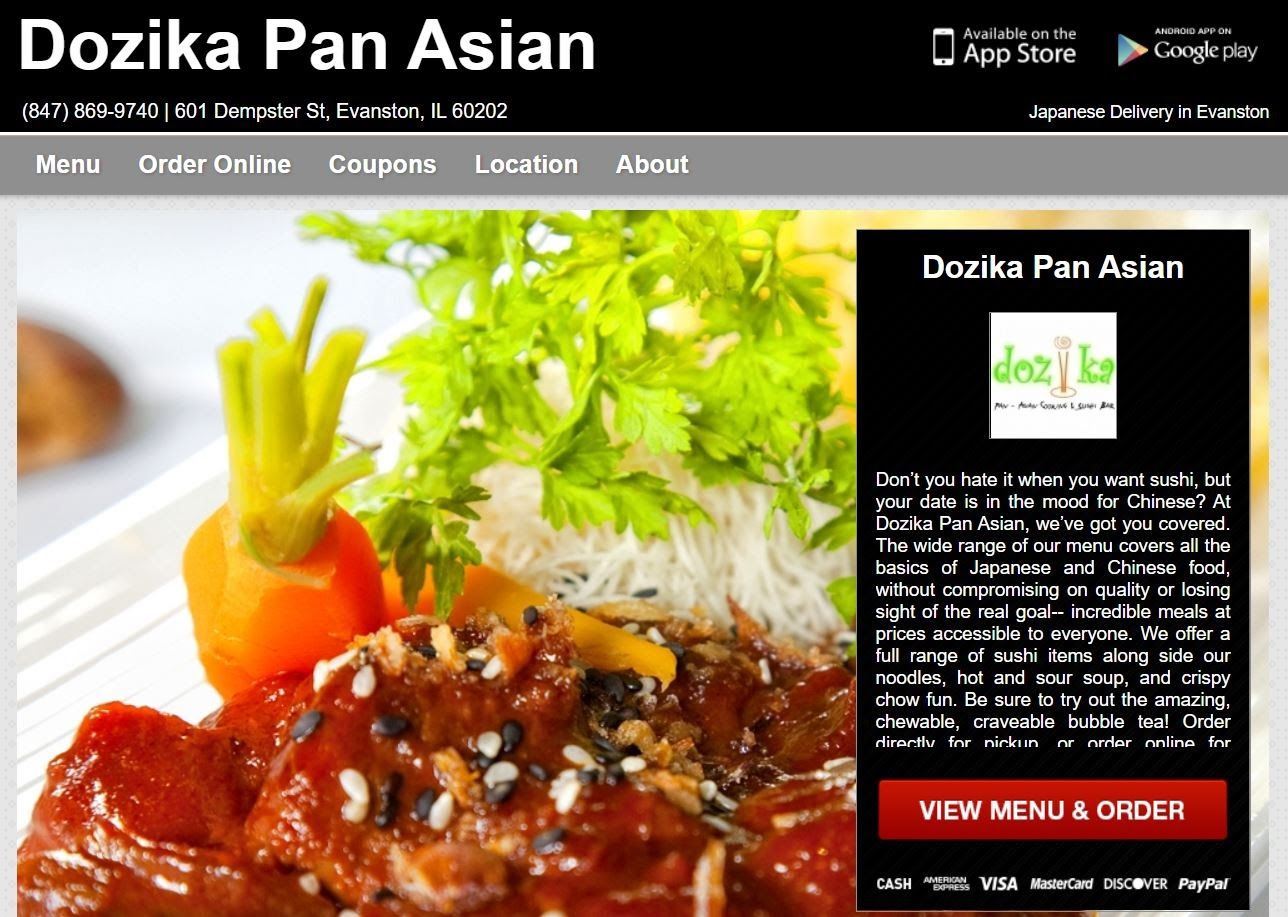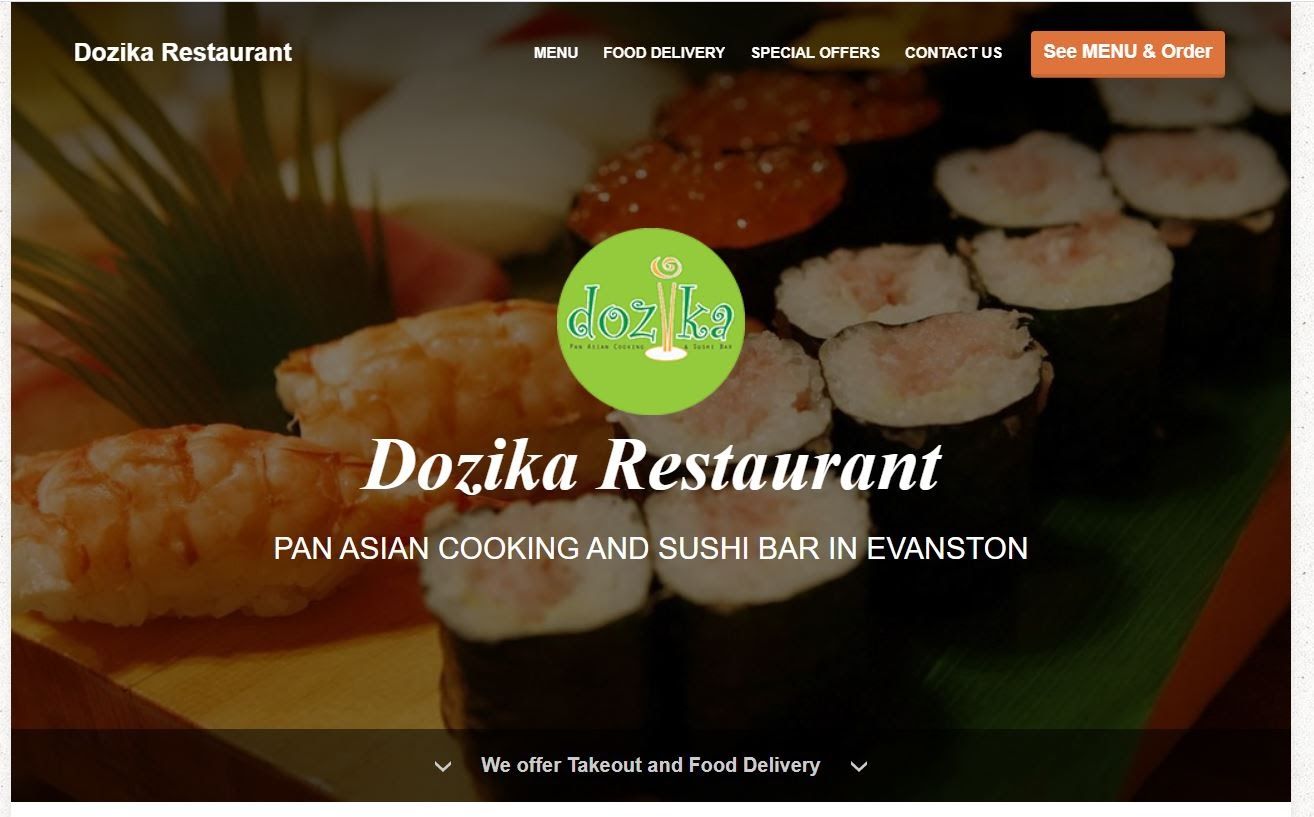"Support Local Businesses" is a motto repeated in signage and online posts by Evanston locals. Delivery orders are vital to restaurants attempting to stay in business while the Illinois stay-at-home order is in effect. For customers ordering food, third-party delivery apps are convenient and popular. But with their convenience comes controversy.
Grubhub, a Chicago-based company whose founders have met with Mayor Lori Lightfoot, is at the forefront of the local conversation. The City of Chicago recently ruled that by the end of May, third-party apps must state all commission and fees earned. During this pandemic, these apps are receiving mixed reviews from Evanston restaurants, many locally-owned and operated, that are struggling for every order without government aid.
David Kelch, the owner of the triumvirate of Lulu’s, Taco Diablo and Five & Dime on Davis Street, hopes businesses and customers can move away from these apps.
“They’re really rapacious, and the charges they make people pay are really high,” Kelch said. “We’re down to 15% [commission and processing fees] over at Grubhub, and we’re going to start negotiation with them to drop it further.”
Since they’ve been in Evanston for around 30 years, well before the 2004 founding of Grubhub, Lulu’s and Taco Diablo share an online order platform run in-house, and Kelch estimates that a majority of their orders come through that system. He said he understands the convenience of the delivery apps and appreciates them for bringing in first time customers. While packing that first order, they include papers on how to order online through their site instead and why that method supports the restaurants more than Grubhub.
“These apps do these non-transparent and, in my opinion, shady practices,” Kelch said. “We’ve seen them overcharging tax for most customers who don’t really care or take much notice. Randomly, on occasion, we see these small service charges were added. You have to work really hard to have them removed.”
Kelch said the three restaurants will continue to use Grubhub throughout the pandemic, but after indoor dining eventually reopens, they’ll reconsider negotiations with the service.
Sandy Chen, the owner of Koi on Davis Street, calls it a similar hate-love relationship. Prioritizing its personal website ordering system, Koi only pays for the third-party site Grubhub and does so purely for marketing purposes. This means Grubhub only takes 17% on receiving orders through their platform, rather than the industry-understood standard of 30% for added delivery service.

“I would definitely encourage people to use it to go on, but don’t order from there,” Chen said. “Especially [for] small businesses in Evanston. That will really help them keep money in their pockets.”
Like Kelch, Chen says her restaurant likes to include a small note in their orders about how ordering directly from a restaurant is the best form of support.
Some restaurants are reliant on Grubhub as their only source of delivery sales at this time and are willing to pay the price in return for convenience and promotion. Operating an online market and paying delivery drivers requires skill and costs money, and a company like Grubhub provides a streamlined third-party service. It generates profits from the transaction, charging commission and marketing fees attached to every transaction made on the platform.
Beginning in 2011, Grubhub created websites using a restaurant’s name and identifying information, even if the restaurant had already developed a site. These alternative sites used Grubhub-owned phone numbers and “order here” links to the Grubhub menu page as the primary option for online ordering. The use of these phone numbers and links secures a commission charge for the company. These websites operated outside the control of restaurant management and at times, outranked the authentic website in search ranking.
The New Food Economy (now The Counter) broke the initial website-creation story in June of 2019, publishing an accompanying Google Sheet with all the domains it could link to Grubhub or Seamless, a subsidiary brand. Evanston local stores with websites included Dozika, Lao Sze Chuan, Mt. Everest Restaurant, Firehouse Grill and more.


Grubhub responded to the story in an in-house email, claiming this was only news to customers, not restaurant owners. Contracts signed by restaurants upon registration with Grubhub stated the company may register websites on the restaurants’ behalf. Grubhub CEO Matt Maloney said in the same email the company stopped automatically creating the websites in 2018 and will turn over ownership of the sites if requested.
The recent rules for third-party delivery services published by the City of Chicago’s Department of Business Affairs and Consumer Protection focus on transparency in order for customers to “make informed choices as to whether and how they wish to support local restaurants.” Before transactions, apps must clearly outline the menu price, sales and other tax, delivery and service fees collected by the app or restaurant, tip paid to the delivery person and any commission made by the app involved in the transaction, whether in percentage or dollar form.
It takes a concentrated effort to evade third-party services with high accessibility and instead connect directly to the restaurant. These apps are employing targeted PR work to encourage use during this time, with Grubhub allowing restaurants to defer payments for a short period and UberEats waiving the delivery fee for customers but not mentioning the commission fees paid by restaurants. If a restaurant has the time, money, knowledge and skills on staff to generate a solid online presence, the best guidance comes from its social media pages, including Facebook or Instagram. Or if speaking can be stomached, a simple call.
Chen predicts the impact of stay-at-home orders will last well into the future. “Small businesses like me will really have to depend on carryout business for the next two years,” Chen said. “It’s going to be a long journey.”
For the time being, these Evanston businesses are asking locals to seek direction from the people making your food, not the third-party logistics companies.